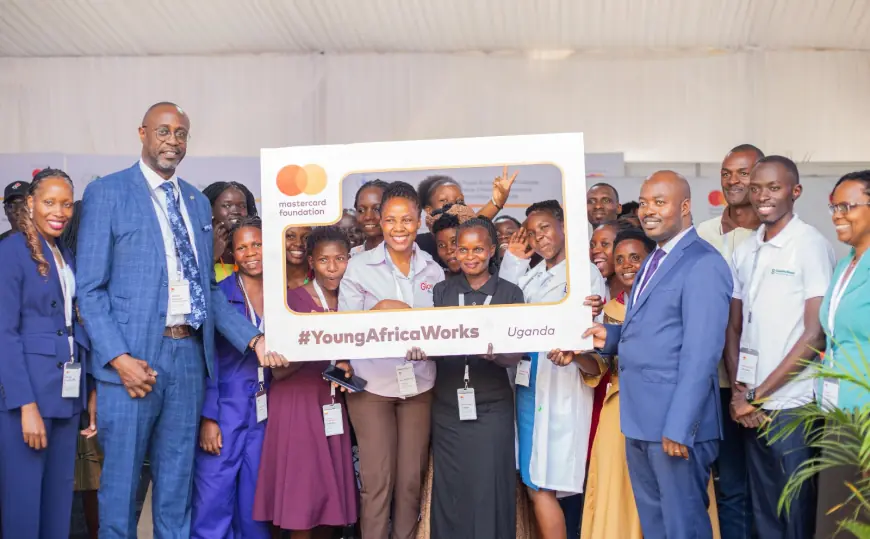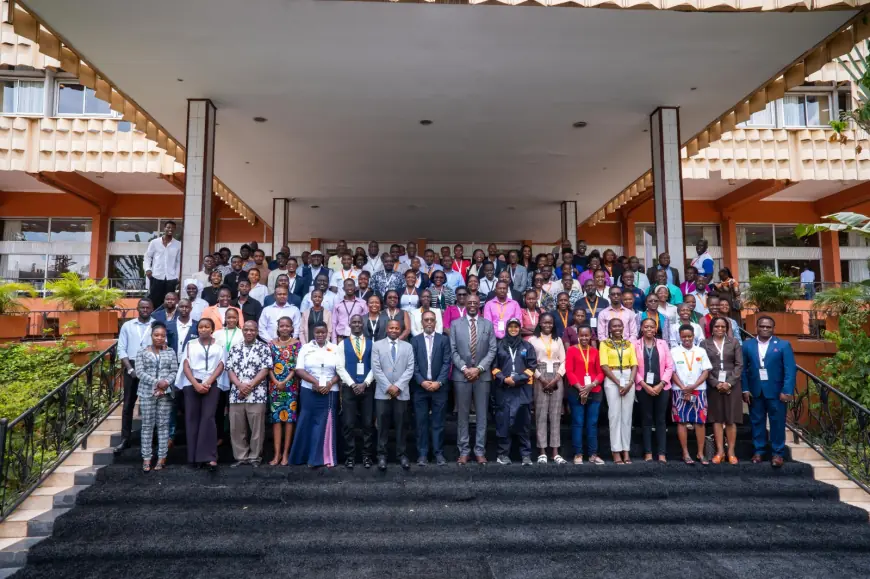Mastercard Foundation’s Young Africa Works Dialogue Charts the Path to unlocking youth-led entrepreneurship

Annually, Uganda churns over 700,000 graduates into the labor market, but only 90,000 secure formal employment, leaving hundreds of thousands to grapple with uncertainty of unemployment.
Last week, the Mastercard Foundation held the Young Africa Works 2025 Dialogue, an event that brought together government officials, private sector leaders, financial institutions, and development partners to explore how youth-led entrepreneurship can drive economic transformation.
Held over two days, the dialogue centered on critical issues on what must be done to unlock youth entrepreneurship as a pathway to dignified and fulfilling work? This discussion was timely, given Uganda’s soaring youth unemployment rate and the persistent mismatch between graduate skills and labor market demands.
Adrian Bukenya, the Country Director of Mastercard Foundation said, “While Uganda’s has made progress in support 1.3 million young people have access to dignified work and enterprise building or transition support. The impact at scale requires more than numbers and demands collaboration and systemic transformation.
Bukenya said, “Over the past five years, the Foundation has collaborated with financial institutions, private sector and development partners to create pathways that provide young people access to financial access, skills training, access to markets and entrepreneurship programs that support youth-led enterprises. He further emphasizes the importance of refining programs to make them more responsive to youth needs, ensuring that young entrepreneurs have access to critical resources such as land, capital, and technical assistance.
One of the most pressing challenges discussed was the financial barriers young entrepreneurs face. While initiatives like the Micro, Small, and Medium Enterprises Recovery Fund have provided crucial support, many young entrepreneurs still face challenges in securing loans due to high collateral requirements and complicated application processes.
Joseph Lutwama, Director of Programs at Financial Sector Deepening Uganda (FSDU) emphasize the need for tailored financial products and enhanced financial literacy programs to help young people access and manage credit effectively. “Without these interventions, many promising business ideas fail to take off due to a lack of capital” Lutwana said.
Beyond financing, access to land and infrastructure continues to limit youth-led enterprises, particularly in the agriculture sectors. Innovative models such as Heifer International’s block farming in Busoga and GOAL Uganda’s co-sharing initiatives are offering practical solutions by enabling young entrepreneurs to collaborate, share resources, and improve efficiency. Additionally, hands-on learning programs at institutions like Muni University, Uganda Rural Development and Training Institute (URDTI), and NSSF Hi-Innovator Business Academy are equipping young people with the skills they need to succeed in the real-world business environment. Universities are being urged to take a more active role in fostering innovation and bridging the gap between education and entrepreneurship.

For Uganda’s youth entrepreneurship ecosystem to thrive, policy reforms and digital transformation must be prioritized. Streamlining business registration processes, introducing youth-friendly tax structures, and investing in digital infrastructure will create a more enabling environment for young businesses.
In his keynote speech, Assistant Commissioner Francis Twinamatsiko of the Ministry of Finance reaffirmed the government’s commitment to expanding financial access and support for entrepreneurs, recognizing that youth are the key drivers of economic transformation. However, shifting societal attitudes toward entrepreneurship is just as critical. “Young people must be encouraged to see entrepreneurship not as a fallback option but as a viable and rewarding career path that can drive both personal success and national development” Twinamatsiko said.
As young entrepreneur Immaculate Adongo aptly put it, “Too many people think of entrepreneurship as a last resort instead of the best opportunity. It is time to change this.”
By embedding entrepreneurship training into education, expanding financial inclusion, and improving access to productive resources, Uganda can harness the power of its youth to drive economic transformation. With the Mastercard Foundation’s continued commitment, young entrepreneurs are positioned to contribute significantly to the country’s economic future.












